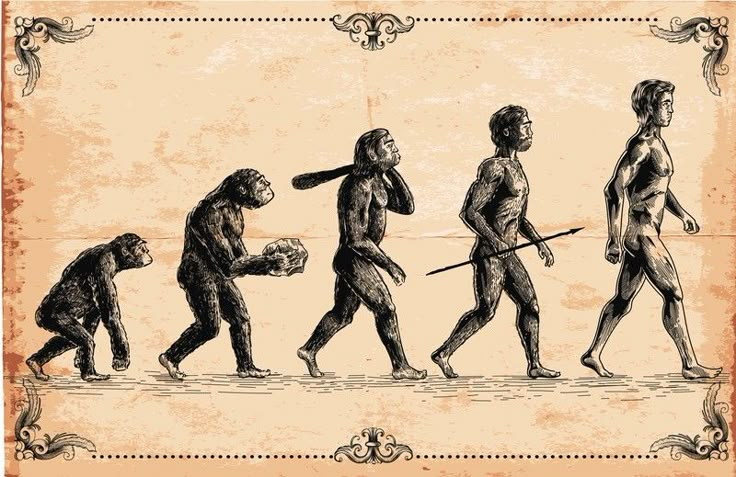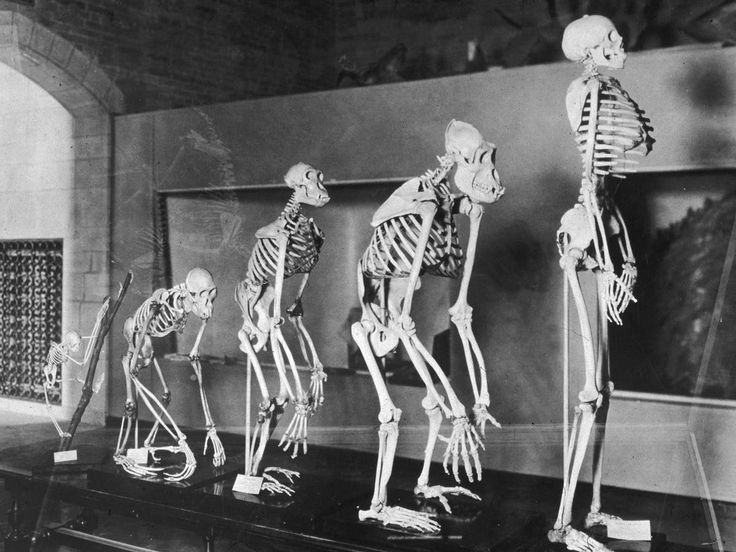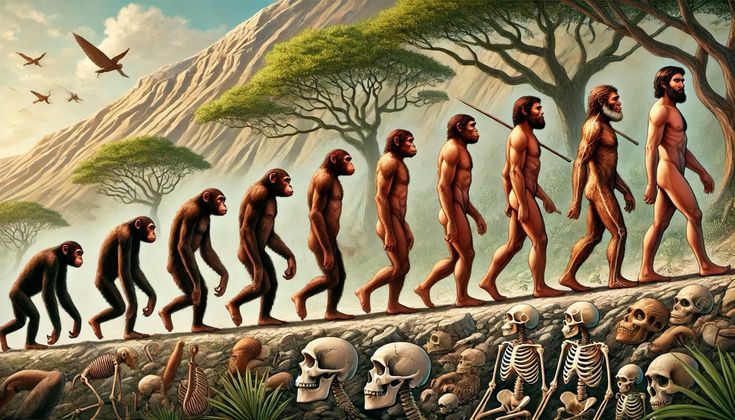Human Evolution
Since the dawn of my consciousness, when I started observing the surroundings critically, I witnessed everything evolving with time. My height was increasing, my body was expanding, the society around me was exponentially urbanizing, my parents having grey hairs, granduncles dying, my cognitive memory getting better so was my strength. Landlines became smartphones and smartphones became portals to globalize the world, winters are now more fleeting and forests or massive crops that used to be near my town are now concrete jungles. I experienced a shift from chalkboards to projectors and from family dinners to WhatsApp Groups , things evolved drastically, which was indeed inevitable.
All of these things made me question the evolution of my whole existence — like how I evolved because being someone who loves animals, I felt the same love and empathy by hugging animals as I felt with any human. There could be a possibility that we all share the same lineage of something because we all have the same kind of heart that pumps the blood, a brain which works differently, hands to shake, and legs to run joyfully. This temptation to extinguish this curiosity led me to the exploration of Darwinism, which is also known as the Theory of Evolution.
Now this is something known as the bone of contention because the peeps around me can't negate this as it is more of a scientific fact than a theory, and intimidatingly speaking it shakes their spiritual beliefs to the core , and at least for now, they are reluctant to accept it. Yet this is not going to change history. They have to accept it eventually, no matter how long they try to avoid it or run away from this but this isn't something we should be concerned about. Let’s cut to the chase and learn what actually evolutionary biology is.

So starting from where we left in our last article on Abiogenesis, we humans or precisely Homo sapiens are one of the species of human-like animals that ever existed. We don't know how many species of humans existed yet, because a lot of fossils are still left to be excavated, but this isn't something complex which you can't gulp down, as I anticipate that you must have seen multiple species of chickens, goats, and cows. If they can have, why can't humans?
However, with incomprehensible regret, I have to say that only Homo sapiens are left on this planet Earth because of multiple reasons, which we are going to cover in a while. For now, let’s start from the beginning with a chronological order, when around 10 to 7 million years ago, we used to share a common ancestor with chimpanzees and bonobos, known as the apes. They were intelligent, social, and adapted for their life in trees using long arms and strong fingers to swing from branch to branch.
Wait! They were not as confused or paradoxical like us, because they lived by their instincts , by just behaving on inborn impulses or motivation to action, typically in response to some specific external stimuli, which was something imperative for their survival. They were not concerned about any essence of their life, or any capital to purchase food, but the only biological meaning of our existence , which is just to eat in the day and to reproduce at night.
However, with time, when the climate changed and forests began to shrink, these apes had to land on the open grasslands, which made them shift to the ground from trees. This was one of the conscious decisions we can say, which was imperative for our adaptation too, and we became bipedal organisms, which started walking on two legs and freeing their hands to do other important chores , and from there, it was the dawn of hominins ( the race of humans) .
Before this I was talking about the epoch of some 7 million years ago, and now the famous "Lucy" of Australopithecus afarensis around 2.4 million years ago. These animals started walking upright fully and used primitive tools. Their brains were small, but their behavior hinted at something new called awareness.

This time was actually the kickstart of Homo species, because the Homo habilis was also evolved during this time , which is known as the handyman who began shaping the stones with the purpose of utilizing them for their daily chores.
Then another species of Homo , known as Homo erectus , started using fire to cook and stay warm. This one was also the breakthrough in human evolution, because when we used to eat raw food, it took a hell of a lot of energy from us to digest it , but when we started eating the cooked one, which was easier for our stomachs to digest, a lot of human energy was saved, which was later diverted to our brain or muscles to do hard chores.
Homo erectus were those hominins who migrated out of Africa to Asia and Europe, because they were hunter-gatherers and were always in search of a hunt , which made them move out of the places where they struggled to find animals on which they could feed.
There were a lot of species still left to be discussed here which evolved in between this period, but we can skip them because we don't know a lot about them yet, and they don't serve any major breakthrough between our evolution.
So let’s just directly move to the Neanderthals, which evolved around four hundred thousand to three hundred thousand years ago in Western Asia and Europe. They were strong for the harsh weather of Europe , to conserve heat , smart to survive in extreme conditions, and emotional enough to empathize with each other amidst uncertainty and chaos. They were the first humans who used to bury their dead ones and practice art.
Parallely, in Africa around three hundred thousand years ago, Homo sapiens (we) evolved — who painted caves, created fairy tales and then put their absolute faith in them, who asked questions and sought their answers. They had a lighter skeletal build in contrast to Neanderthals, highly complex brains to do abstract thinking, creativity, and art.
But then around sixty thousand years ago, the Homo sapiens began migrating out of Africa into Europe and Asia, where they met Neanderthals. Now there are two theories , one is that they interbred because modern humans outside Africa carry 1 to 2 percent of Neanderthal DNA. However, in contrast to it, there is another theory which states that the sapiens killed the Neanderthals and made them extinct around forty thousand years ago. There could be multiple reasons for their extinction such as climate change or the competition with Homo sapiens for food and territory.

Whatever happened, in 2025, there is only one species of humans , called Homo sapiens ,exists. The others went extinct because they were not flexible or adaptive enough to the changes happening in the surroundings. Our history is full of such instances where species resisted change and didn’t try to adapt , and they went extinct. Now we can only find their fossils.
Anyhow, the one key takeaway you can have from all of this is that all the absurd myths, racial discrimination, national honour, religious dogmas, cultural superiority complexes, and other tribalistic illusions that once divided humanity are ultimately meaningless in the grand narrative of evolution because in the end we all are its end result , where our survival favors adaptability, cooperation, and an ability to see beyond invented boundaries.
Author and Researcher: Mohsin Ramzan